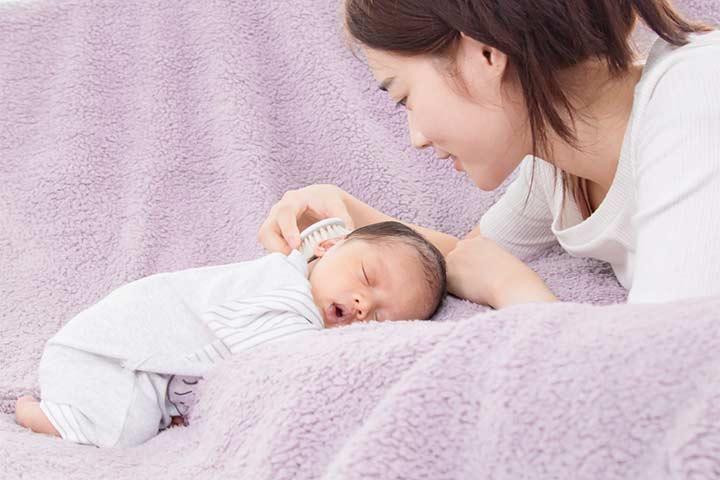
Image: Shutterstock
The arrival of a new baby can be a transformative experience for everyone in the household, whether you’re a parent, grandparent, or sibling. While these tiny beings bring immense joy to our lives, their presence can also trigger uncertainties and fears. Caring for a newborn can also feel intimidating, especially when you’re unsure about what signs to watch for, what’s considered normal, and what might be a cause for concern. Moreover, the uniqueness of each baby can add to the challenge, as their experiences can vary widely. However, understanding how a baby’s body functions, and what to expect during each stage of their development can make those initial months more manageable, reducing anxiety and unnecessary trips to the emergency room. Here, we’ll share some lesser-known facts about babies to help you enjoy this remarkable journey with confidence. Read on!
1. They Will Lose The Hair They Were Born With
Image: Shutterstock
Yes, this is entirely normal! If parents or caregivers observe their baby experiencing hair loss during the initial six months after birth, there’s no need to be concerned. This hair loss is a typical occurrence during this phase. It’s often associated with natural hormonal changes that can transpire within the baby’s first six months of life and is sometimes a result of the friction caused by the baby resting on their back – which is the recommended sleep position for infants (1).
New hair typically begins to grow back between the 6th and 12th month of a baby’s life. It’s worth mentioning that the hair that regrows during this period might appear somewhat different from their original hair at birth.
For instance, if your baby initially had curly hair and experienced hair loss, the regrown hair might be straight or wavy. However, if you happen to notice any signs of redness or flakiness on the baby’s scalp, it’s advisable to promptly consult your doctor for further evaluation.
2. They Sneeze More Often In Order To Keep Their Nose Clean
Image: Shutterstock
If you’ve noticed your little one sneezing multiple times during the day, there’s no need to jump to conclusions about illness just yet. Newborns frequently sneeze, and it’s quite common for them to do so. In fact, they might sneeze numerous times throughout the day, which is perfectly normal and even indicates their good health. Sneezing serves as a reflex that helps newborns clear their nasal passages and shields them from potential germs (2). However, it’s essential to remain watchful, and if you observe any additional concerning symptoms like labored breathing, fever, decreased appetite, nasal discharge, or a persistent cough, it’s advisable to consult their pediatrician for a thorough evaluation.
3. Can Can Lose Weight During Their First Days Of Life
Image: Shutterstock
Now it goes without saying that all babies are unique and that not all babies weigh the same, but specialists suggest that a healthy baby weighs between 5.5 and 10 lbs at birth (3). But it can cause some concern between parents, especially first time parents when, later on, instead of gaining weight, the baby loses weight. But this is fairly common. It is normal for your baby to lose between 7% and 10% of their body weight during their first few days of life. Then they will start to gain weight around 2 weeks or so after birth (4).
4. Babies Cry A Lot But Have No Tears
In the first few weeks of life, a baby’s tear ducts are still developing, which is why it’s not unusual for them to cry without producing tears. However, most infants typically start shedding tears after reaching 2 weeks of age, while some may take up to 2 months before this ability fully develops. Even though babies may not have tears initially, they spend a significant portion of their day, roughly 2 to 3 hours, crying. This crying serves as their primary means of communicating their needs to their caregivers. While there are times when they may cry for no apparent reason, more often than not, it’s because they are hungry, tired, or in need of a diaper change (5).
Taking care of a baby can be overwhelming, especially during the first couple of months when they are going through major developmental changes all the time. Understanding the stages of a baby’s development is crucial for providing them with the best care. The early stages of a child’s life are full of unique and fascinating moments, all contributing to the journey of parenthood. Armed with knowledge, parents and caregivers can walk through the precious first months of a baby’s life with confidence, compassion, and a deeper connection with their little ones. Now that you know a couple of facts about your newborn, you can sit back and relax when things unfold. Happy parenting!
















